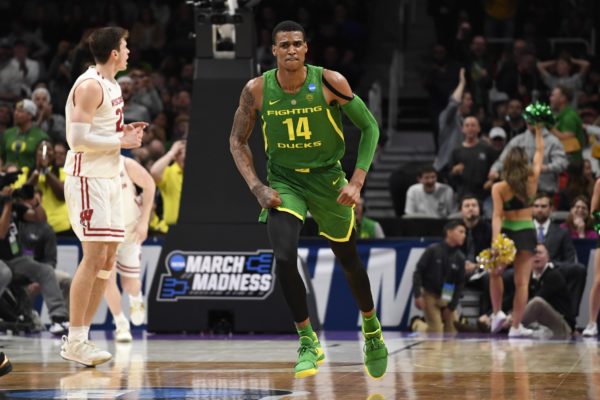Oregon is Incredibly Hot: Does it Matter?
Posted by Adam Butler on March 26th, 2019In the general realm of sport, we are often quick to relegate a team’s temperature. A team is – often obviously – HOT if they’ve won a series of consecutive games. Of course they are COLD if the opposite is true. In this time of survival and advancement, the latter is mostly irrelevant, the former, however, is heavily debated.

Take, for example, the famed 2011 Kemba Walker Connecticut Huskies. They wrapped regular season play, losers of four of their last five games, seven of their past 11. They were frigid before they were scalding, famously sweeping through the Big East and NCAA Tournaments over the last month of the season. They finished hot. Conversely, Gerry McNamara’s 2006 Syracuse team heroically get heated up in the Big East Tournament, winning four games in four days. Their season salvaged, the darlings of the sport promptly lost in the first round of the NCAAs. In March, you’re perhaps only as good as your last game.
These Oregon Ducks, however, they’re hot. Are they the UConn kind of hot or the Syracuse kind? That’s difficult to say and is ultimately rooted in results. Focusing on process – and I suppose temperature, if that’s the case – the Ducks are on fire. They’ve won 10 straight games and have improved their defense by an astounding 20 points per 100 possessions. Over this streak, the Ducks are yielding just 0.82 points per possession. Extrapolated across the whole season that would place the Ducks a significant five points per 100 possessions better than the next best defense (Texas Tech). Of note, these are raw rather than adjusted numbers, but what is March but raw?
Looking at the other side of the ball, the Ducks are also scoring more efficiently. What a delightful confluence, right? During the aforementioned streak, Oregon is scoring seven more points per 100 possessions, a seven percent improvement on their offense. In concert, Oregon is seven percent more efficient on the offensive end, 20 percent more efficient on the defensive end, and comfortably playing in the Sweet Sixteen for the fourth time in seven years.
Of course, at the risk of redundancy, this is noting Oregon’s unadjusted efficiencies. We haven’t taken into account their competition. Belabored across the nation has been the skill (or lack thereof) in the Pac-12 this season. The Ducks have spent the lion’s share of their winning streak beating up that conference. They’ve also taken this heat to the Big Ten (Wisconsin) and the Big West (UC Irvine), two teams of great success but perhaps nothing overwhelming.
Virginia is Oregon’s next opponent. Virginia has a better offensive efficiency than any of its predecessors and better than any Dana Altman team ever. Our second belabored point, this isn’t your father’s Bennett Cavaliers, they can score and do so quite efficiently. While Oregon plays great defense at a snail’s pace, Virginia plays better defense (across 30+) at a slower pace. Oregon’s offense has improved over its season efficiency (recall, seven percent better) but it’s still a five points per 100 possessions less efficient than the Cavaliers.
Speaking of possessions, this is a common topic when it comes to Virginia basketball. Famously, they play slow: top-10 slowest (by tempo) in the country for seven years running. This year, the Cavaliers are playing to the tune of about 60 possessions per game. Competitively, the Ducks are playing at an Oregon Altman slow pace of 64 possessions per game. You’ll see a lot of jokes about this match-up having a low over/under because of this. You should also note that during Oregon’s defensive heater, they’re allowing teams to shoot just 23 percent from beyond the arc. Wow! Virginia, for the season, is allowing teams to make threes at just a 27 percent clip. That’s signature Tony Bennett. Is this game a battle of who can make more threes? Considering in Virginia’s last six NCAA eliminations their opponents are making an average of 13 threes at a 46 percent rate. Is Oregon capable?









































